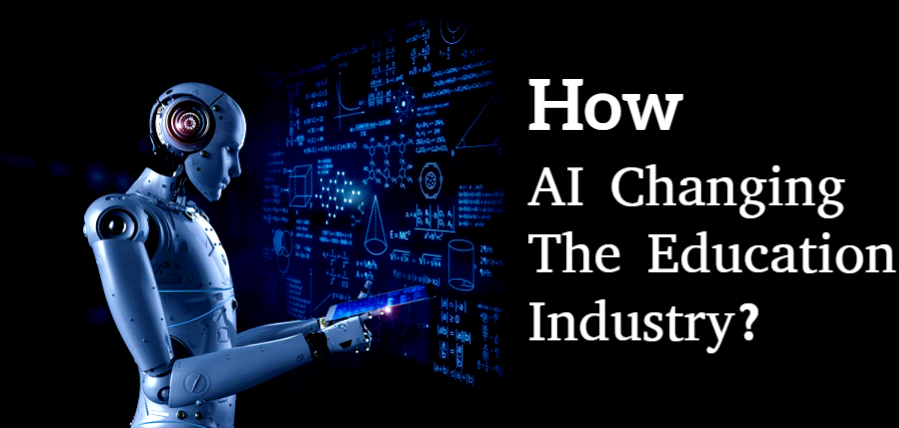Education is one of the most well-known sectors that has undergone several adjustments and adaptations. Covid-19 has boosted the adoption of new technologies in a variety of industries, but EdTech has progressed at a breakneck pace. Almost instantly, millions of schools shifted to remote learning. The phenomenal rise of this industry has attracted vast financial investments and funding from all over the globe. Artificial intelligence (AI) and machine learning (ML) are gradually changing the face of education and transforming educational resources and institutes. The worldwide artificial intelligence (AI) in the education industry was valued at $1.1 billion in 2019 and is expected to reach $25.7 billion in 2030, according to psmarketresearch, with a CAGR of 32.9 percent over the forthcoming years 2020–2030.
Artificial Intelligence (AI) is transforming education in a variety of ways. From personalized learning experiences to textbook digitization, the possibilities are endless. If you wish to break into the AI career path, I suggest you check out the AI Training course that will help you understand from basic to advanced level hands-on.
In this blog, let’s take a closer look at how AI and machine learning are transforming the educational industry in this blog. So, let’s start!
AI in education can automate a variety of tasks such as updating educational software, evaluating, assisting in the improvisation of numerous courses, teaching students, and a variety of other benefits.
How is AI and ML Developments transforming the education industry?
The role of AI in the education industry are:
#1. Smart Content
As there are numerous learning materials available online, an AI-based solution can assess and effectively manage massive data to provide the necessary information for students. Students can benefit from AI in education by using personalized cloud platforms that provide digital training, seminars, and other educational services such as:
- Daily content updates
- Visuals
- Digital lesson
#2. Personalized learning
AI-enabled tailored education prepares learners for difficulties, finds knowledge gaps, and redirects them to appropriate topics. With AI’s continued advancement and complexity, it may one day be possible for a machine to read users’ facial emotions and alter teachings appropriately. Students may now better comprehend what they’ve been studying in a far more personalized level, thanks to AI solutions that blend cognitive and learning science with practical AI training and research.
#3. Chatbots
In today’s world, chatbots are frequently used in the retail and marketing industries. Chatbots, on the other hand, is an excellent fit for the education industry. Students could interact with a specialized chatbot responsible for addressing administration difficulties, gaining all the necessary answers to their questions, while professors can spend more time delivering personal, tailored comments or bridging a student’s knowledge gap by using chatbots.
#4. Easy language translation
Another of the best features of AI systems is their ability to translate instructional materials into several languages. This will allow international students to study courses that are not offered in their homelands. As a result, an engaging community for students of all ages and levels emerges. These features assist students in learning much more quickly and achieving their academic goals in a more efficient manner.
#5. No Geo-Barriers
In reality, Edtech’s Ai and machine learning have enabled students to learn from a wide choice of courses offered beyond boundaries, regardless of their timezone. Overall, global learning empowers students to expand their perspectives by allowing them to study from anywhere, at any time.
#6. Secure online examination environment
AI-powered evaluation systems are used by many institutions and colleges throughout the world. They can use these to conduct testing over the internet. They create their own questions and activities from a pre-designed question bank by the teachers. Aside from that, they provide intelligent options and parameters that you can use when assigning tests to certain individuals. Although they save teachers a lot of time, minimize their workload, and eliminate the risk of making mistakes, many institutions are wary of their authenticity because of the possibility of students cheating.
Concluding words
Artificial Intelligence is expected to have a significant role in all educational activities. The use of AI in education has begun to demonstrate its benefits and strength, and this breakthrough will help facilitate and promote better learning for everyone. It appears that AI and machine learning will change the world of education. We’ve just listed a few avenues in this article, but there are many more alternatives and chances to consider. If you’re curious about the opportunities, contact a leading AI and machine learning development company to learn more about how they might assist you.


